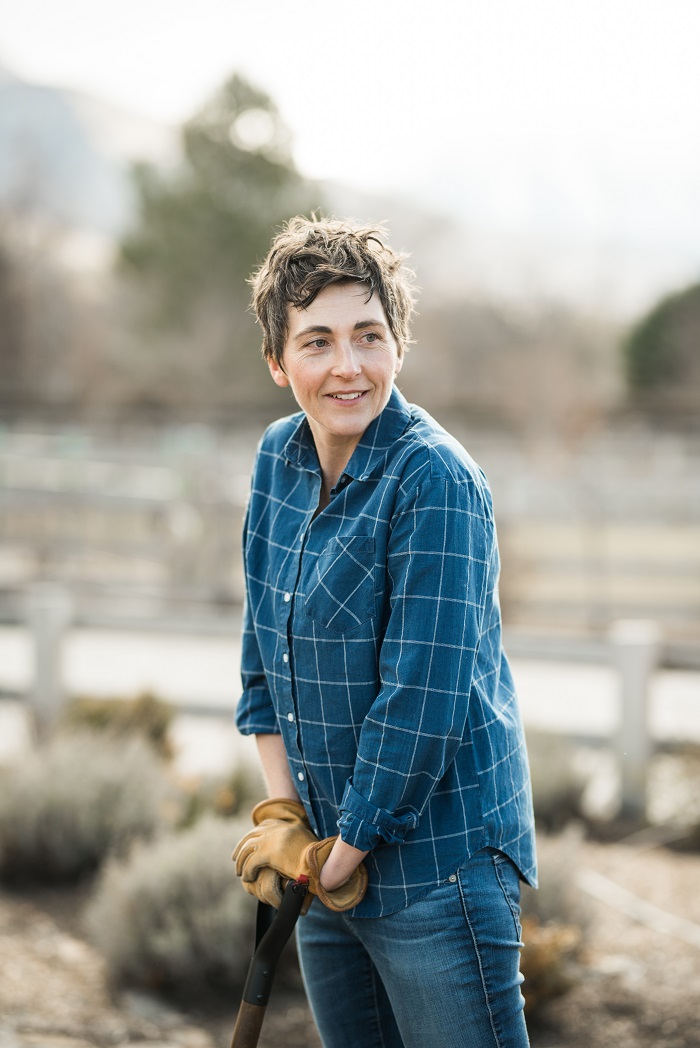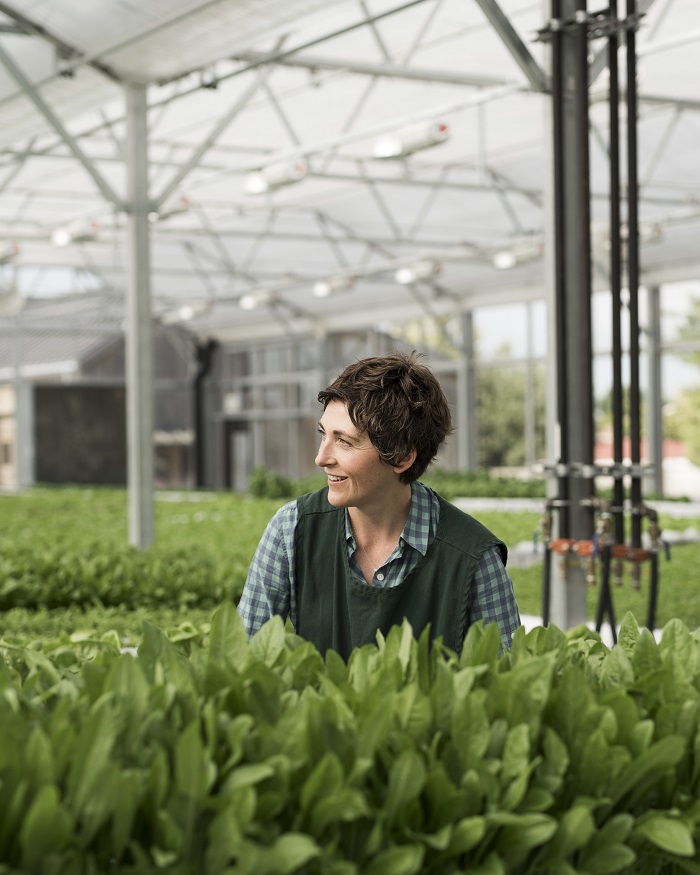
Page Westover started Snuck Farm in Pleasant Grove in 2015 on land that her grandparents inherited from their grandparents. From the beginning she wanted it to be something different. She says, “I’ve always had a love of nature and good food. I went to Utah State University and majored in nutrition with an emphasis in dietetics.” After working in her field for more than 10 years, she found she really loved inspiring people to eat better by choosing good whole foods over processed foods. Ultimately, she decided she really wanted to be a producer and give something of value to the community.
Snuck Farm is named after Page’s grandfather, Boyd “Snuck” Fugal. She explains that “when he was young, all the kids his age got together and gave each other nicknames—girls and boys.” Fugal earned his name from his propensity to sneak around and play jokes on the others. He was known as “Snuck” his whole life.
Page also inherited his business model from her grandparents. Their motto is Eat Well, Do Good. “I had a desire to make it more than just a business,” Page says. “My grandparents definitely did a lot of good for the local community. They donated land for parks and churches. They served on school boards and city councils. So when I started the farm, I wanted to marry two things—eating well and doing good.”
The farm sits on 3½ acres, quite small for a working farm, but Page uses hydroponic greenhouses that allow her to grow eight times the amount of food she could grow in more traditional fields.

She primarily grows all manner of greens in the two hydroponic greenhouses including head lettuce, butter lettuce, arugula, kale, chard, and a variety of herbs year round. Her hydroponics work by running a nutrient solution through channels that sit off the floor holding the plants. It is constantly recirculating and so uses 90 percent less water than traditional farming methods. There is also very little water lost to evaporation. “The plants take what nutrients they need from the solution and then it is recirculated.” No soil is involved in this process.
Page also has a few plots to grow crops such as tomatoes, cucumbers, and peppers organically; and she just started a soil greenhouse.
Most of the produce is sold to local restaurants and corporate cafeterias at businesses such as Adobe, Vivint, and Ancestry.com. Page has found that she is able to market easily to those with similar food values as her own.
She also sells to the general public through a subscription CSA-type model (Community Supported Agriculture). Customers pay a monthly subscription fee and pick up fresh produce weekly at the farm or drop off locations.

With so many Utah farms in danger of corporate encroachment, Page and her family made a conscious family decision to preserve the small acreage left of the original farm acreage. When her grandparents died, the city zoned the property into ¼ lots. Page was able to work with the city to have it rezoned as residential agriculture. She feels secure. “We’re right in the middle of the neighborhood, a small piece of land, but we took measures to insure it doesn’t get developed. We are trying to build something that will last generations.”
Page is on a mission to provide local food to her community. “It feels like a treasure for the community. When three major food organizations are in charge of our food, it’s hard to sleep at night thinking about food security. We need resources where our communities are providing local food. I focus on the future and the mission and I just go.”
Snuck Farm
504 W 1100 N, Pleasant Grove

